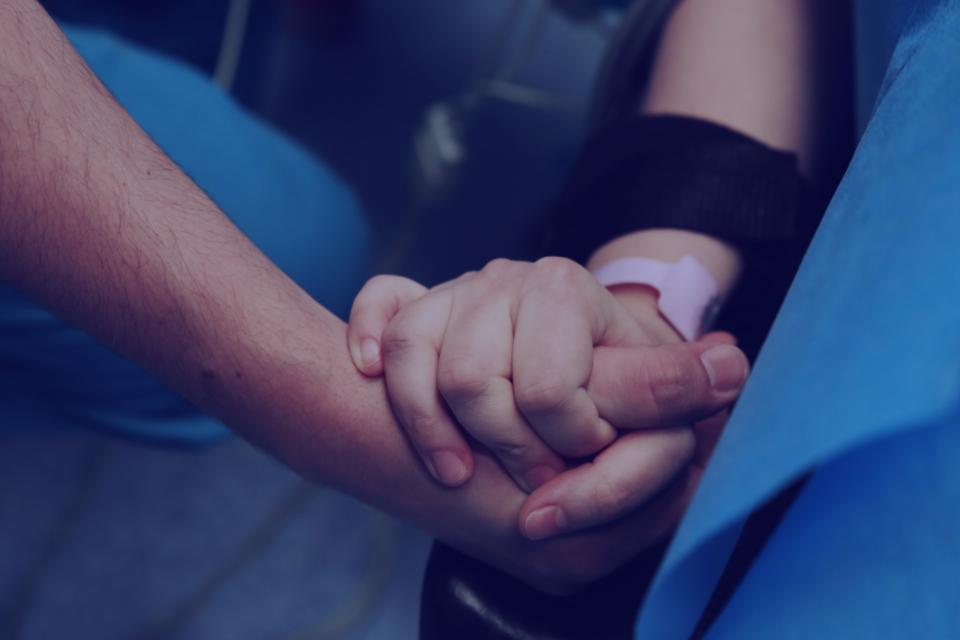In the final report from the Ockenden review of Shrewsbury and Telford NHS Trust much has been revealed. In this article Neil Stewart, Editorial Director, Maternity and Midwifery Forum, addresses the trauma that has been uncovered.
While the headlines have focussed on the number of deaths and severe damage, with highlights on access to caesarean sections, the final Ockenden report drew back a curtain on an unspoken legacy of childbirth. Birth Trauma – in over 85% of the incidents Ockenden investigated death or severe injury was not the outcome or the complaint but unresolved birth traumas.
Many women go through life carrying long term physical and mental effects of birth trauma believing their experience is the exception, the price of a beautiful baby, that their sacrifice and suffering must be borne in silence.
At a Maternity and Midwifery Festival in London several years ago the Forum held a seminar on Birth Trauma, the aftermath of childbirth where the mother and baby survived but there was lasting impact either psychological, with degrees of PTSD, or physical, ranging from serious intensive care and post birth operations to long term incontinence.
Think of the recent public row about adverts for incontinence pads when the Chief Midwifery Officer challenges the advertisers for appearing to normalise incontinence as a consequence of childbirth when it is a condition that should have been treated and should not be accepted by women.
At a conference of 700 midwives with several seminar options on a range of issues two things happened which shocked those present.
First, the whole conference tried to go to the small birth trauma seminar, and it had to be run repeatedly during the day, suggesting the issue was much bigger than understood.
Second, the midwives raising questions were not only speaking about what they were seeing happening to mums, but were speaking about what had happened to them in childbirth, even with their knowledge of the system they had and continued to suffer.
Behind the headlines Ockenden has drawn back the curtain on the huge long-term suffering many women (and midwives?) face from the experience and drama of childbirth, hurt, anxiety, shock, stress, conditions that should be addressed, and physical problems that should be fixed.
Stand back and look at the numbers from Shrewsbury alone.
1592 incidents including 200 cases of death and long-term damage to babies and 12 maternal death.
The other 1389 incidents, however, fall into a range of categories set out by Donna Ockenden’s report along the whole timeline of childbirth with repeated examples of existing guidelines not followed, terrible communications, evasion, blame, false information but also physical and mental consequences left untreated, not addressed, lost between maternity services and GP referrals.
With other reports due on East Kent and Nottingham and similar questions being asked all around the UK this issue will grow.
Over the past 5 years since the first shock of Morecambe Bay and the roll out of Better Births the number of still births has been reduced by 25% on the way to matching the 50% reduction by 2025 set by government to match Swedish and other best practice.
At the core of Ockenden, however, is still the repeated problem of lack of qualified staff and the terrifying and growing issue of retention and high turnover, or churn, among staff, managers, clinicians.
She has set out demands for action that everyone can get behind
£350 million more for services, better ring fencing of budgets, Increased midwifery numbers, better retention, supernumerary midwives available on units, more consultant midwives with specialist expertise, better combined training in maternity teams across medicine and midwifery plus a reminder to know and follow the rules and guidelines for best practice that have been set out for years. The RCM target of 2500 more midwives looks to be the demand to follow.
Having drawn back the curtain on Birth Trauma it is hard not to predict that the next scandal revealed will focus on the limitations of postnatal follow-up by community midwives, GP’s and the huge decrease in health visitors.
Whose job will it be to identify and address birth traumas?
We will be hearing more of the kinds of reports that made up over 85% of the Ockenden incidents, where the mother and baby survived but something traumatic and life changing for the mother left a legacy that needs treatment.
Neil Stewart, Editorial Director, Maternity and Midwifery Forum and Festivals
April 2022
To access the full Ockenden report see here: https://assets.publishing.service.gov.uk/government/uploads/system/uploads/attachment_data/file/1064302/Final-Ockenden-Report-web-accessible.pdf
Listen to what Sue Macdonald, festival curator; co editor, Mayes Midwifery; midwife educationalist and host of Maternity and Midwifery Hour said at 7pm on Wednesday 30 March with regard to the Ockenden report.
Watch below:
… and catch up on the rest of the hour and all the other episodes in the series here.



